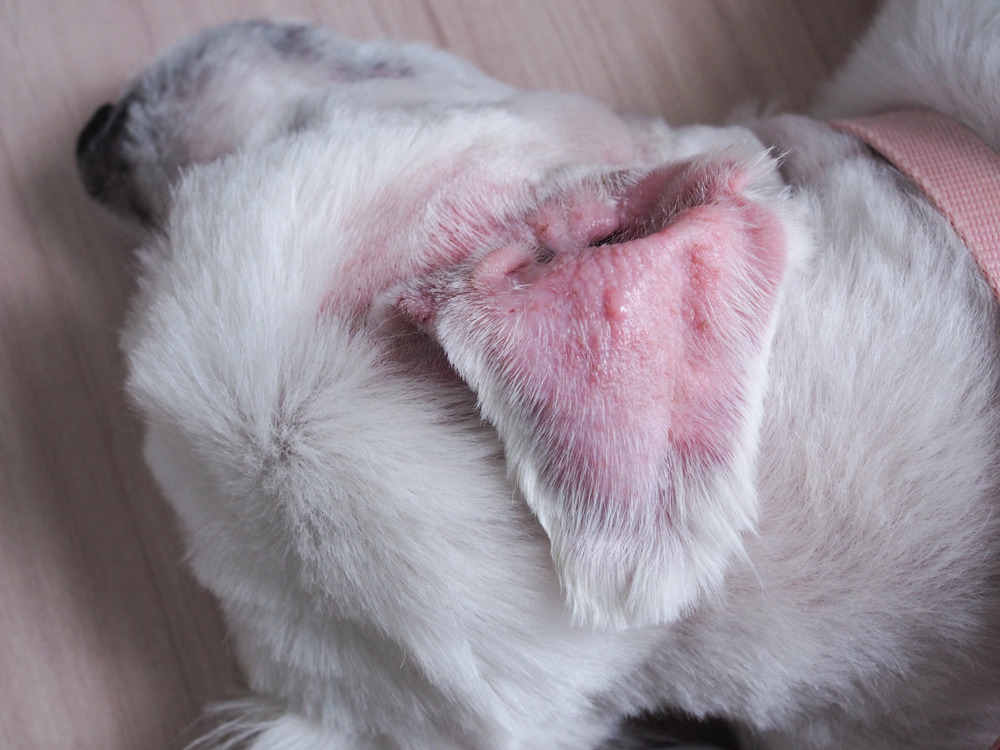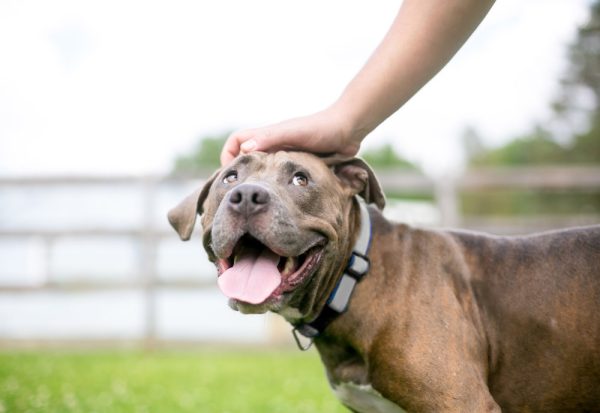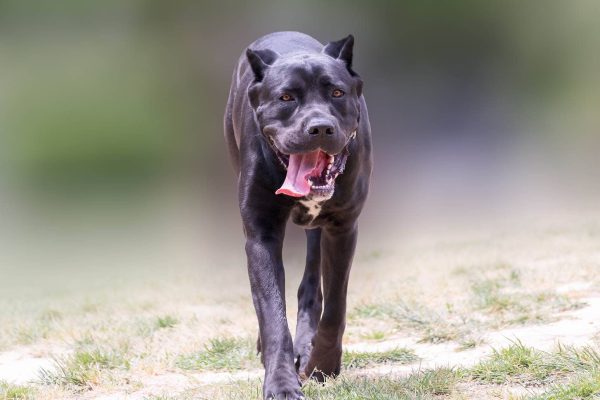Itchy bumps on your dog can be extremely worrying for you, and irritating and uncomfortable for your pet. They can have a variety of causes from allergies to parasites like fleas and mites, your dog should be checked by a vet so that they can be treated appropriately.
If your dog has itchy bumps on their skin, keep reading for a list of several possible reasons.

The 6 Possible Reasons Why Your Dog Has Itchy Bumps
1. Allergies
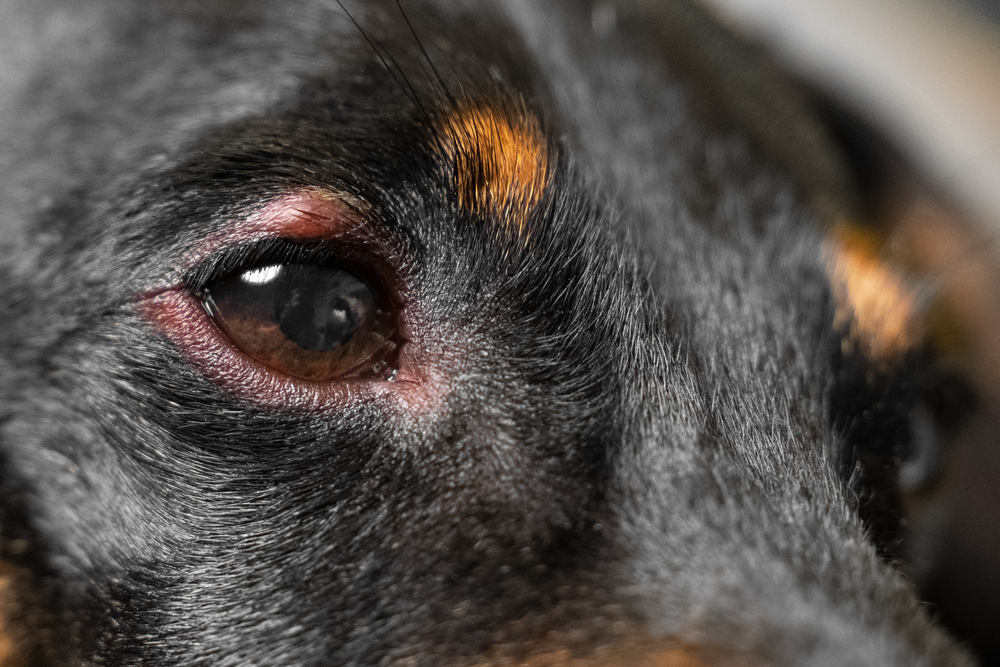
One of the most common causes of itchy bumps on the skin is skin allergies. Like humans, a dog’s immune system can overreact to certain substances (allergens) and cause signs that affect the skin. There are different forms of skin allergies. Dogs can suffer from long-term allergies to things in the environment such as pollen and house dust mites. They can also be allergic to certain foods such as beef, dairy, and chicken. Although less common, sudden allergic reactions can occur due to things like insect bites and stings or medications. These reactions can cause hives (urticaria) and rashes which appear suddenly.
Managing your dog’s long-term allergies ideally requires determining what is causing the reaction and avoiding it if possible. It is important to work with your vet to choose the right treatment plan for your dog. A special diet, medication to tackle the itch, strengthening the skin barrier with essential fatty acid supplements, and topical treatment to prevent and treat infections may be needed. Allergy vaccines (immunotherapy) are also available.
2. Flea Infestation
If your dog is suffering from a flea infestation, you may notice raised bumps on the skin from the flea bites, and you will also likely notice your dog itching and scratching continuously. You may be able to see tiny fast moving, dark adult fleas in the coat, or see flea dirts (flea poop), which look like small black specks in their fur. Some dogs have an allergy to flea saliva and will have a more marked itchy reaction to flea bites.
Other parasites besides fleas can cause itchy bumps on your dog’s skin, including mites. Mites include parasites such as Sarcoptes which can lead to scabies, or sarcoptic mange. Scabies is very itchy and the areas most commonly affected are the ear margins, elbows, and hocks (ankles). As well as itchy red bumps, there are often crusts and hair loss. Sarcoptic mange is contagious to other dogs and humans. Pyoderma, the medical term for bacterial skin infection, can cause pimples or bumps on the skin that are itchy and may be filled with pus. Other signs can include dry and flaky skin, hair loss, and a musty odor. Anything that damages the skin barrier, like itching and scratching due to allergies, predisposes dogs to developing pyoderma. Ringworm, a common fungal infection, can cause areas of hair loss with crusting, and sometimes, itchy bumps. If you are concerned your dog has ringworm, then visit your vet for advice and treatment. Other conditions look similar, but ringworm can be passed onto you and other people who come into contact with your dog, and it is important to get it diagnosed and treated appropriately. Contact dermatitis occurs when a dog’s skin reacts to contact with irritants or allergens, such as chemicals in cleaning products or certain plants, leading to red, itchy bumps. When it comes to choosing the right grooming products for cleaning your pup to prevent dog odors and avoid skin irritation, there are two products we cannot recommend highly enough. The Oatmeal Pet Shampoo from Hepper is formulated with aloe and oatmeal to soothe skin and hydrate the coat; and for a convenient on-the-go option to quickly refresh sensitive areas, Hepper's Wash Wipes will help you keep your dog clean from head to tail with moisturizing ingredients. Both products are pH-balanced and formulated with pet-friendly ingredients, free of harsh soaps, chemicals, and dyes. Give this duo a try to soothe, heal and nourish your dog's coat, and leave them with an irresistible just-left-the-spa cucumber and aloe scent. At Dogster, we've admired Hepper for many years, and decided to take a controlling ownership interest so that we could benefit from the outstanding designs of this cool pet company! Skin allergies in dogs are common, but as you can see, many other skin conditions cause similar signs, including itchy bumps. Diagnosing allergies involves ruling out other problems that can cause similar skin signs, like parasites and skin infections. It can take time and patient,e but working with your vet is the best way to find out if your dog’s skin bumps are due to allergies. Vets may suggest an elimination diet trial with a new source of protein your dog hasn’t had before or a hydrolyzed diet to help diagnose food allergy. Allergy skin prick (intradermal testing) and blood tests for environmental allergens are also available. If your dog shows signs of the symptoms above or you suspect they might be suffering from underlying health issues, you should contact your vet. If you need to speak with a vet but can't get to one, head over to PangoVet. It's our online service where you can talk to a vet online and get the advice you need for your pet — all at an affordable price! Bathing can help relieve itchy skin, especially if you use a gentle, hypoallergenic, or medicated shampoo prescribed by your vet. However, bathing too frequently can wash away important oils and dry out your dog’s skin, which can make the itching worse. Certain home remedies can provide temporary relief for some skin conditions, such as oatmeal baths or coconut oil. However, these should not replace veterinary care, especially if you don’t know the underlying cause of the itchiness or if it has been going on for more than a few days. There are several reasons that your dog might have itchy bumps on their skin, with allergies and skin infections being common causes. Fleas and other parasites might also cause bumps, as can contact dermatitis. Schedule a visit with the vet if you notice any bumps on your dog, it can often be easily treated once the underlying cause has been determined. See also: Featured Image Credit: Kittina05, Shutterstock
3. Parasitic Infestations
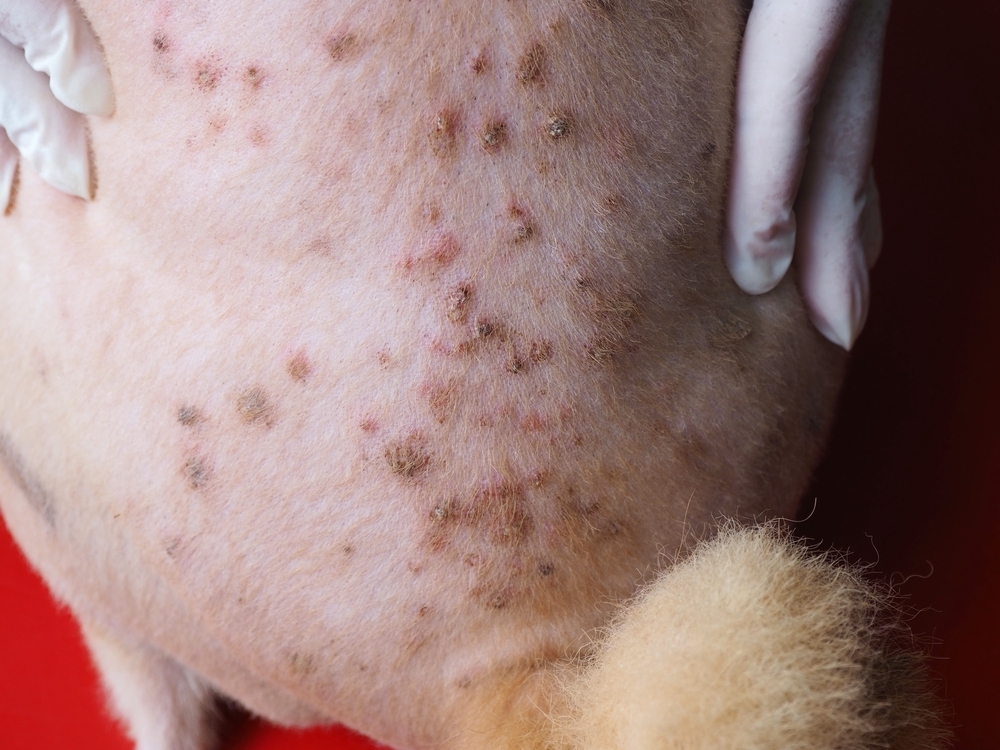
4. Bacterial Infections
5. Fungal Infections
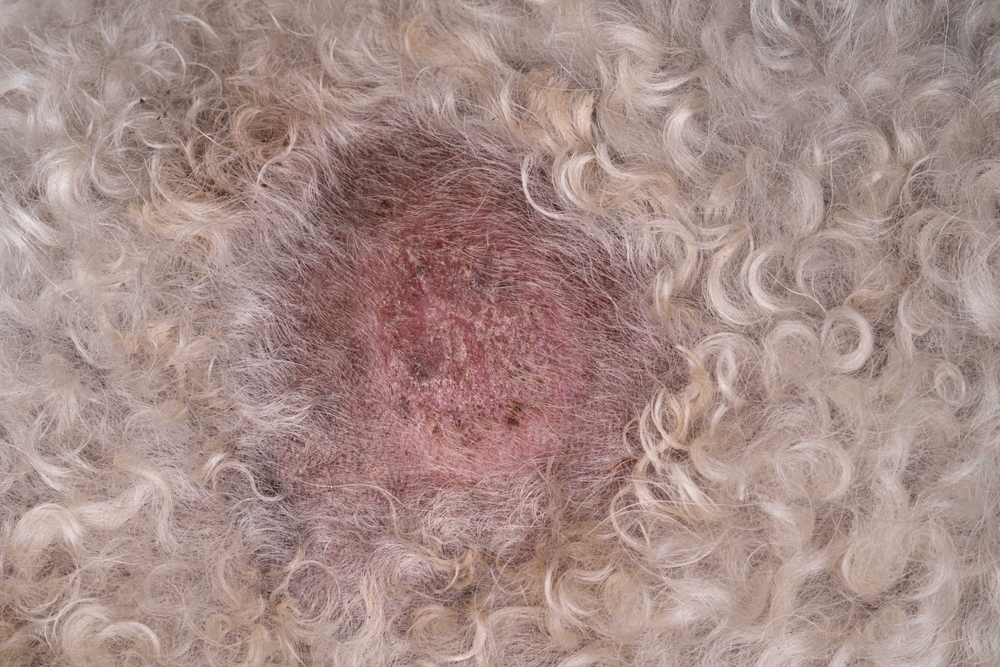
6. Contact Dermatitis
Image
Product
Details
For Bathing

Hepper Oatmeal Pet Shampoo
Check Price
For On-The-Go

Hepper Wash Wipes
Check Price

Frequently Asked Questions
How Can I Tell If My Dog’s Itchy Bumps Are Due to Allergies or Something Else?

Should I Bathe My Dog If They Have Itchy Bumps?
Are There Any Home Remedies for Itchy Bumps on Dogs?
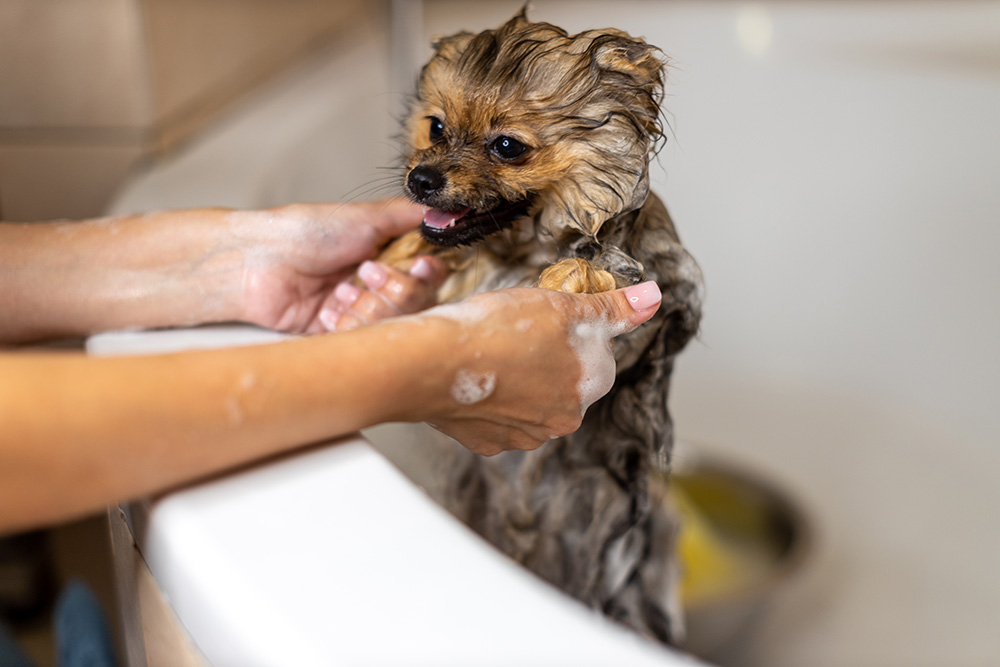

Summary
